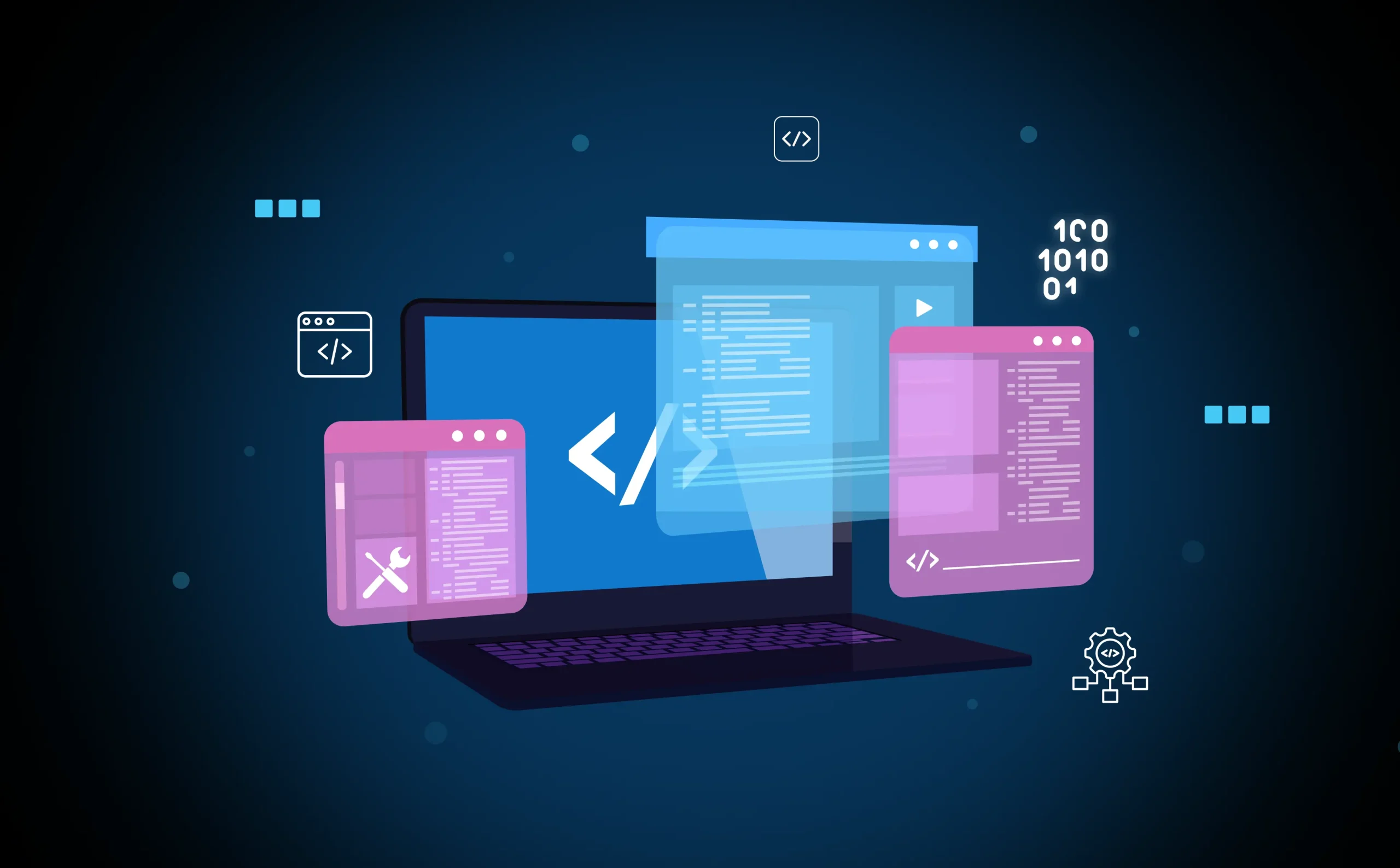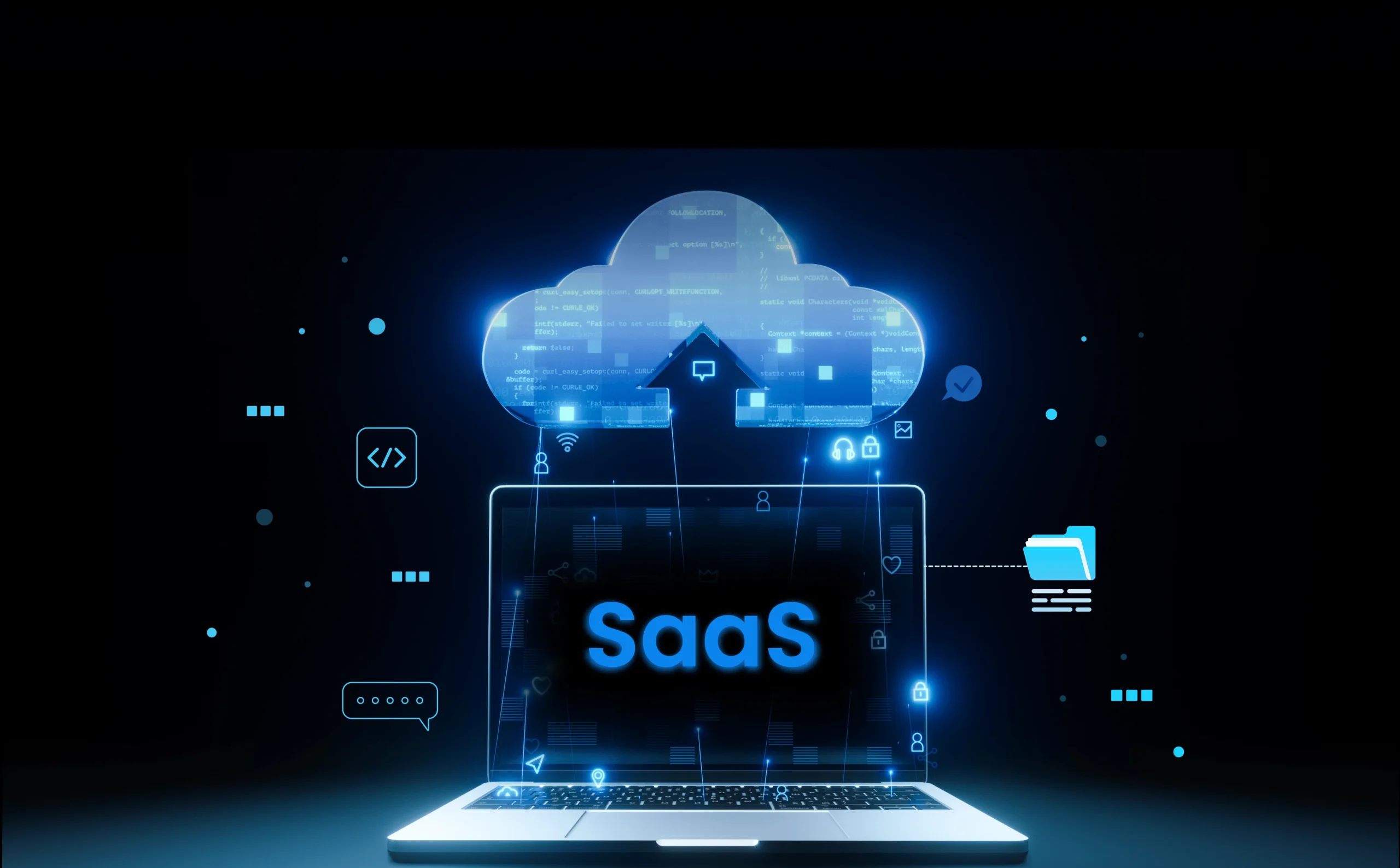From digital consultancies in Manchester to HR companies in London, SaaS (Software-as-a-Service) systems have evolved as the preferred approach for providing value to consumers all around the United Kingdom. Whether it’s subscription-based booking systems, cloud-based accounting tools, or AI-enabled marketing engines, British businesses are not just using SaaS—they’re building them.
And if you’re reading this, chances are you’re considering building one too.
However, one question always surfaces early: “How much would it cost to build a SaaS platform in the UK in 2025?” This is a reasonable query. And sadly, “it depends” is not the solution you are seeking.
The reality is that features, tech stack, location of your development team, compliance needs, and long-term scalability you’re hoping for all affect the wildly different SaaS development costs. But you don’t need vague estimates. You need clarity.
In this guide, we’ll break down the true cost of SaaS development in the UK, what drives those numbers, and how English businesses can make informed investment decisions from day one.
The Basics: What Makes SaaS Different (and More Complex)
Unlike a basic website or static app, SaaS platforms are living ecosystems. They involve:
- Multi-tenant architecture
- Regular updates
- Continuous integration
- User management and security
- Subscription handling and usage-based billing
This isn’t just development—it’s a business model baked into code.
That’s why engaging with a skilled SaaS development company isn’t just about writing software. It’s about building your product, your operations, and your future value proposition—all at once.
Key Factors That Influence SaaS Development Cost
1. Scope & Complexity of the Platform
Are you building a lean MVP (minimum viable product) or a full-scale enterprise tool?
A basic MVP for a customer feedback SaaS platform could cost £20,000–£40,000.
A multi-module enterprise SaaS with analytics, CRM integration, and custom dashboards? You’re looking at £100,000+ and beyond.
Example: A London-based SaaS HR platform with time tracking and payroll features needed ~6 months of development and ~£85,000 in budget to go live.
2. Development Team Location & Model
Your team structure greatly affects your software as a service development cost.
| Development Approach | Typical Cost (per hour, GBP) |
| UK-based agency | £75 – £150 |
| Freelance developer (UK) | £40 – £80 |
| Nearshore team (Europe) | £30 – £60 |
| Offshore team (Asia) | £20 – £45 |
While offshoring can lower upfront SaaS development costs, many UK businesses prefer working with an experienced SaaS application development services provider who offers local time zone overlap, GDPR compliance, and easier collaboration.
3. Security, Compliance & Data Privacy
Building for healthcare? Finance? Education? Your platform will need to comply with data laws like GDPR and possibly additional industry-specific certifications (ISO, SOC2, etc.).
Each layer of security—two-factor authentication, encrypted user data, secure payment integrations—adds time and cost.
If you’re targeting enterprise clients or government contracts in the UK, investing in robust compliance is non-negotiable.
4. Third-Party Integrations & APIs
Most SaaS apps don’t live in a bubble. You’ll likely integrate with:
CRMs like HubSpot or Salesforce
Payment gateways (Stripe, PayPal)
Messaging tools (Twilio, WhatsApp)
Email platforms (Mailchimp, SendGrid)
Each integration adds development hours and potential licensing fees.
Quick Tip: Plan your integrations during the design phase—not after launch—to avoid rework and increased SaaS development costs.
5. UX/UI Design & Branding
User experience matters. British users are used to polished digital products—your SaaS platform needs clean design, intuitive navigation, and fast load times.
Custom design can range between £5,000 and £25,000, depending on:
- Number of screens
- Responsiveness
- Branding depth (illustrations, icons, animations)
Don’t skimp here—good UX boosts conversions and reduces support costs.
6. Admin Panel, Analytics & Reporting Tools
Most SaaS founders focus on the user side, but don’t forget your admin dashboard.
This internal side allows you to:
- Monitor user activity
- Manage accounts
- Track subscriptions
- View performance metrics
A well-built backend admin panel can cost £7,000–£20,000 but saves you serious time later in operations.
Real-World SaaS Development Cost Estimates (UK 2025)
| Project Type | Timeline | Estimated Cost |
| MVP (Lean SaaS for validation) | 8–12 weeks | £20,000 – £40,000 |
| Mid-range SaaS (basic integrations, dashboards, billing) | 3–6 months | £50,000 – £80,000 |
| Enterprise SaaS (multi-user roles, compliance, analytics, mobile app) | 6–12+ months | £90,000 – £200,000+ |
These estimates assume working with a SaaS development company that follows a structured process: discovery, design, development, testing, deployment, and iteration.
Hidden or Overlooked Costs to Consider
Building SaaS isn’t just about development. Factor in:
Cloud hosting (AWS, Azure): ~£100 – £2,000/month based on usage
Customer support setup: live chat tools, ticketing systems
User onboarding flows: tooltips, welcome emails, documentation
Marketing site: your SaaS needs a landing page, blog, pricing page
Legal costs: privacy policy, terms of service, SaaS contracts
Pro Tip: Set aside 10–15% of your build cost for post-launch iterations and bug fixes.
Should You Build a SaaS In-House or Outsource?
Building in-house gives you control, but requires hiring a team, managing payroll, and handling tech oversight.
Outsourcing to a SaaS development company in the UK (or a hybrid onshore/offshore model) means:
Faster time to market
Built-in team collaboration
Better risk management
Access to design, dev, QA, and strategy all in one place
For most UK startups and mid-sized businesses, outsourcing makes more financial and operational sense, especially for the first version.
Final Words: Building SaaS Is a Journey—Budget for Growth
There’s no denying it—SaaS development costs can feel steep upfront. But when built right, SaaS platforms deliver consistent revenue, higher margins, and long-term scalability.
Think of your investment not just in code, but in:
Market opportunity
Customer engagement
Operational efficiency
Predictable cash flow
Whether you’re in London building the next B2B SaaS, or in Manchester crafting a SaaS tool for your niche audience, the key is to plan smart, validate early, and work with experts who understand the entire lifecycle.
Ready to Build Your SaaS with a Trusted UK Tech Partner?
We don’t just develop SaaS platforms—we engineer growth. Being a top SaaS development company supporting companies all around London, Manchester, and the UK, we combine industry-specific knowledge, strategic product thinking, and strong technical expertise to enable you to launch smarter and scale faster.
Whether your company is looking to modernise its SaaS infrastructure or a startup defining its MVP, our SaaS application development services are meant to maximise return on investment and future-proof your company.
- Custom SaaS strategy & architecture
- Scalable multi-tenant development
- API integrations & payment systems
- Ongoing support, iteration & DevOps
- UK-based delivery with global scalability
Let’s turn your SaaS idea into a powerful digital product.
Book a free consultation today and see what we can build together.
Frequently Asked Questions
1. What are the main factors influencing the cost of developing a SaaS platform?
The cost of SaaS development depends on several key elements: the scope of features, complexity of integrations, the chosen tech stack, scalability requirements, hosting infrastructure, and the development team’s location and experience. Custom functionality, data security, and compliance standards in the UK can also impact your overall budget.
2. How much does it cost to build a SaaS platform?
There’s no one-size-fits-all answer. A basic SaaS MVP can cost anywhere from £25,000 to £60,000. More advanced platforms with multi-tenant architecture, third-party integrations, and enterprise-grade features may range from £80,000 to over £150,000. The final cost reflects your product’s complexity, timeline, and quality expectations. We offer affordable SaaS development services and offer budget-friendly engagement models especially for SMEs and startups. Contact us to know more.
3. How does the complexity of a SaaS app affect its development cost?
The more complex your platform, such as AI-driven features, user role management, in-app analytics, or custom APIs, the higher the cost. Advanced SaaS applications require more planning, development time, and testing, all of which contribute to increased investment. Complexity also influences scalability and maintenance needs post-launch.
4. What are some hidden costs associated with building SaaS apps?
Hidden costs often include third-party API usage fees, cloud hosting expenses, software licences, legal and compliance support, and ongoing maintenance. In the UK, businesses should also budget for GDPR compliance and data protection audits, which are crucial in any SaaS application handling sensitive user data.
5. What role does UX/UI design play in the overall cost of SaaS apps?
Great design directly impacts user engagement and retention. Investing in intuitive, responsive, and accessible UX/UI design enhances the overall user experience and reduces churn. While professional design may increase upfront costs, it pays off through stronger customer satisfaction and fewer support issues.
6. What challenges can arise during the development process that might affect the cost?
Unexpected technical hurdles, scope creep, poor communication between stakeholders, or shifting business goals can all affect timelines and budgets. Working with an experienced SaaS development company like Bytes Technolab helps minimise risks through clear planning, agile delivery, and transparent cost control.
7. What are the long-term costs to consider after the initial development of a SaaS platform?
Post-launch, you’ll need to budget for cloud hosting (probably on AWS or Azure), ongoing feature updates, security patches, customer support tools, and performance monitoring. As your user base grows, so will infrastructure and maintenance needs. It’s vital to factor in these operational costs when planning your SaaS investment.
Table Of Content
- The Basics: What Makes SaaS Different (and More Complex)
- Key Factors That Influence SaaS Development Cost
- Real-World SaaS Development Cost Estimates (UK 2025)
- Hidden or Overlooked Costs to Consider
- Should You Build a SaaS In-House or Outsource?
- Final Words: Building SaaS Is a Journey—Budget for Growth
- Ready to Build Your SaaS with a Trusted UK Tech Partner?
- Frequently Asked Questions






